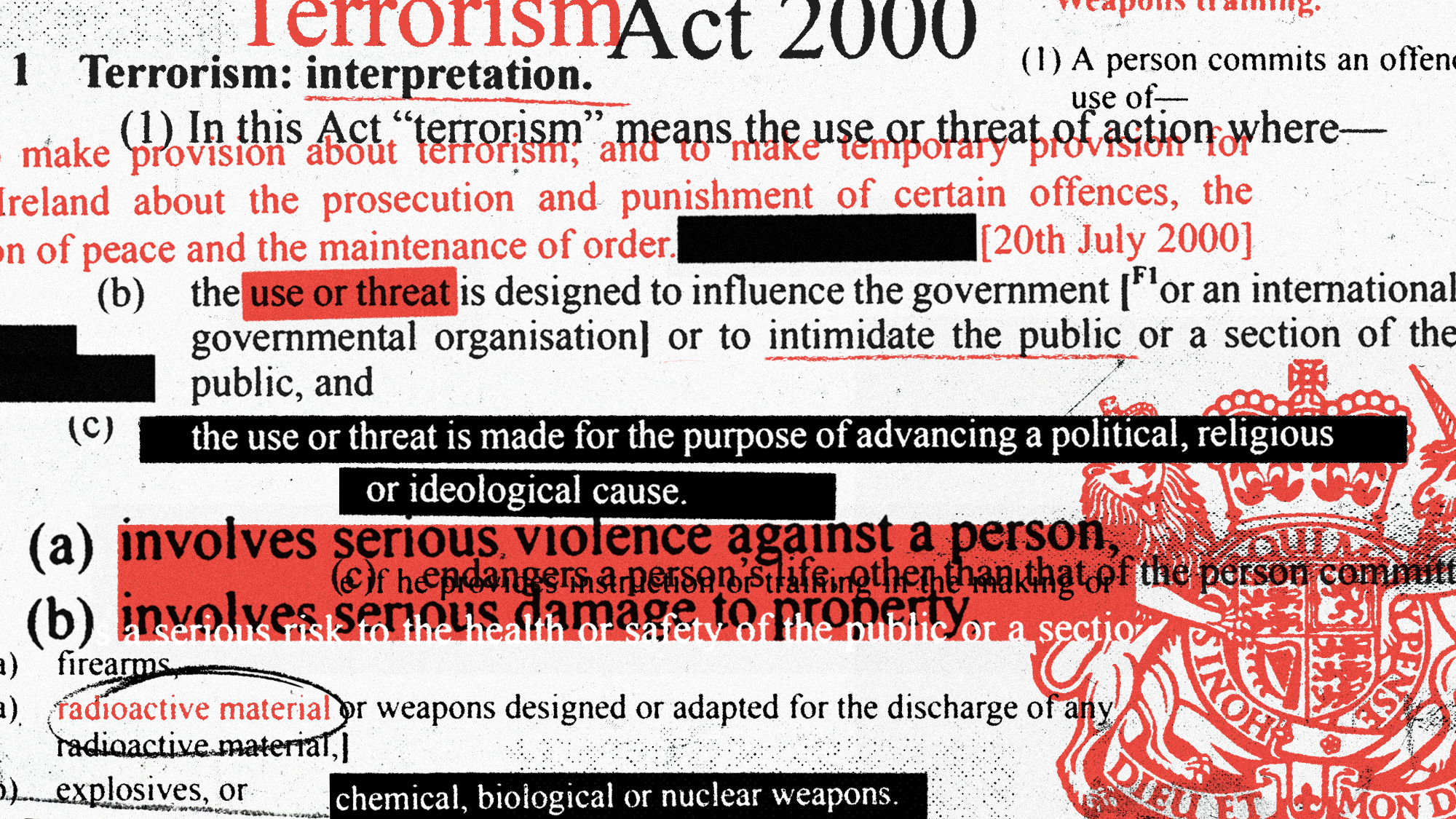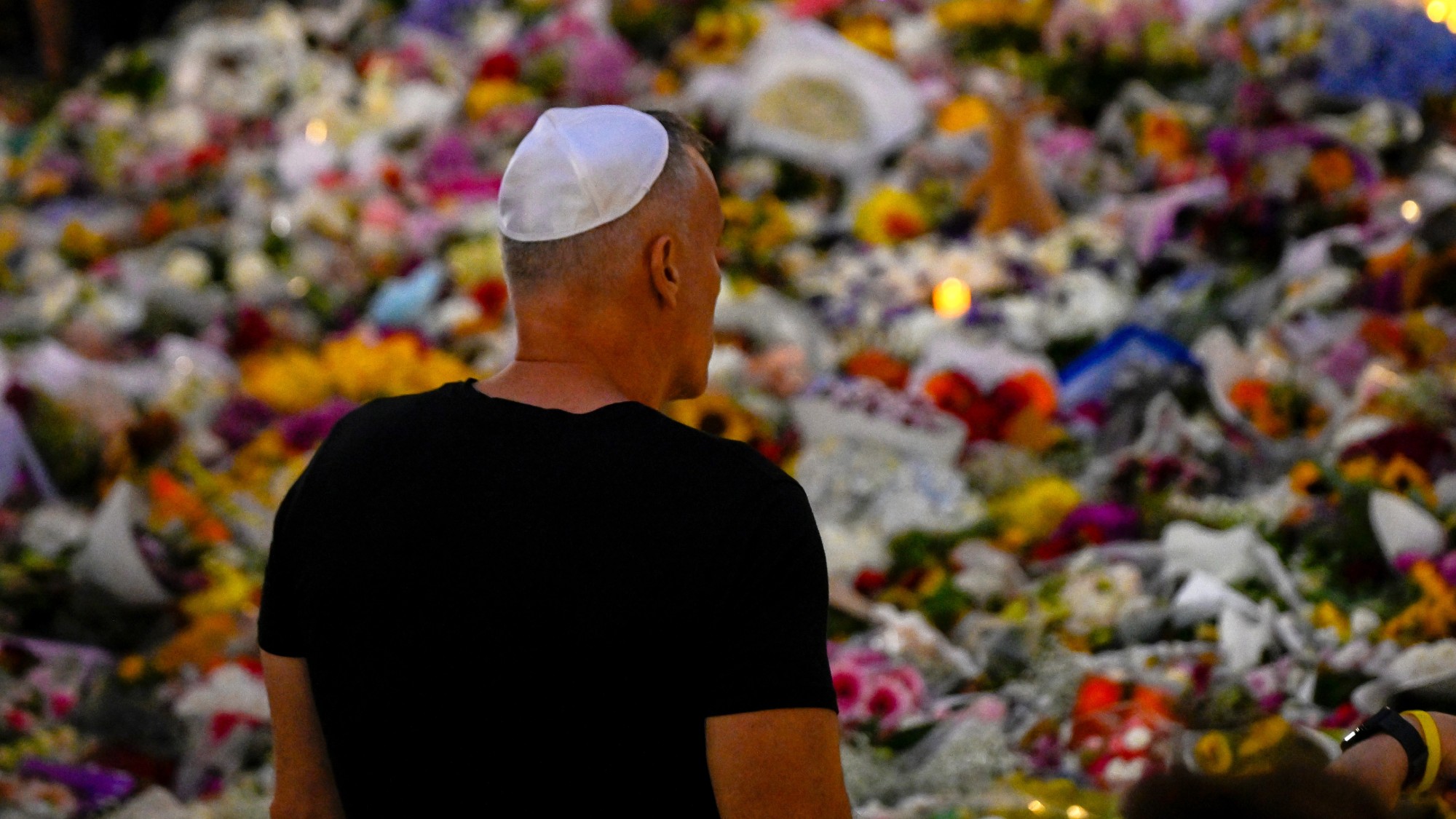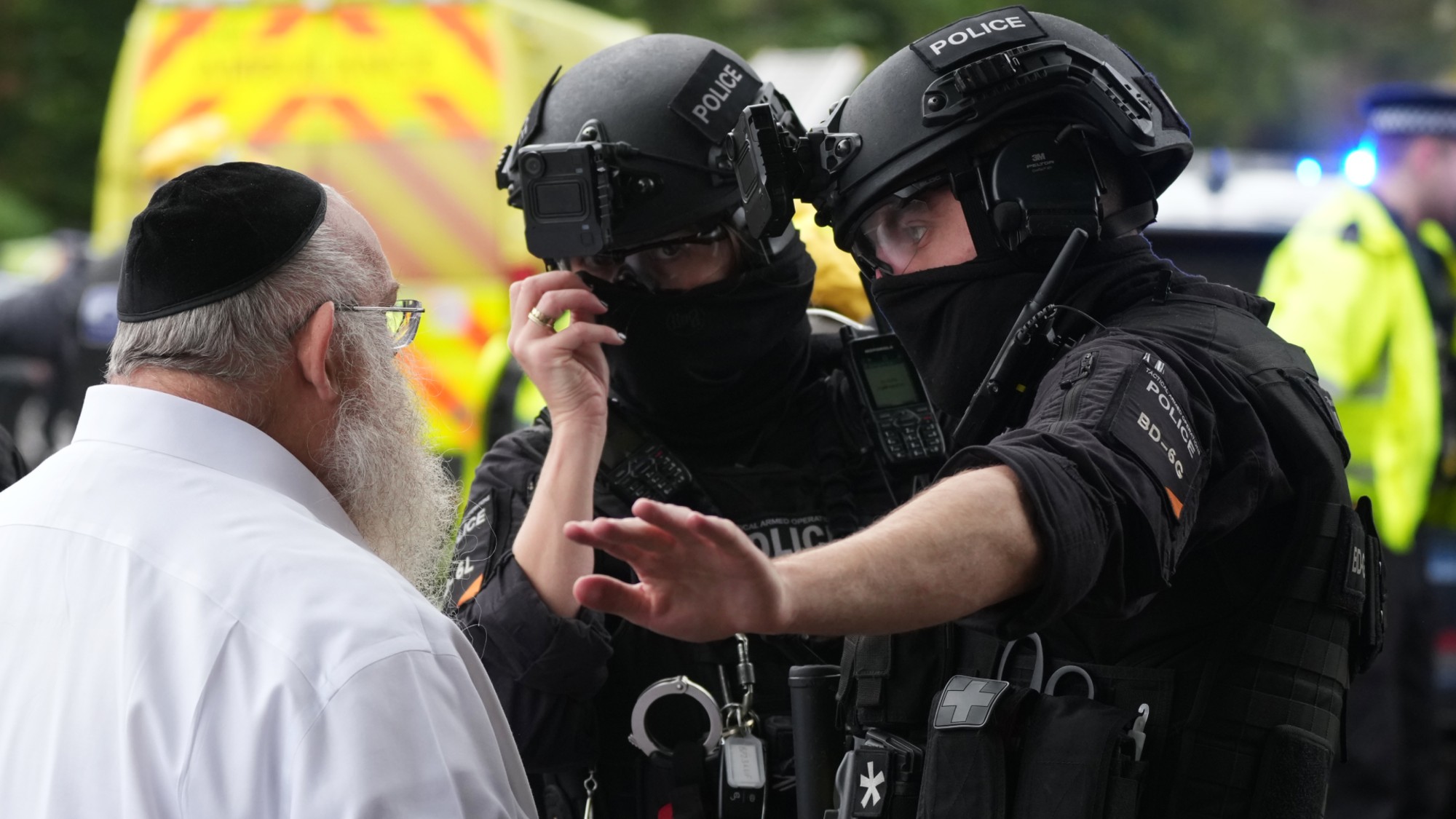How should we define extremism and terrorism?
The government is facing calls to expand the definition of terrorism in the wake of Southport murders

A free daily email with the biggest news stories of the day – and the best features from TheWeek.com
You are now subscribed
Your newsletter sign-up was successful
The government has been grappling with the definitions of terrorism and extremism following the conviction of 18-year-old Axel Rudakubana for the murders of three young girls in Southport last July.
The attacker, who was jailed for a minimum of 52 years, was obsessed with extreme violence but not driven, according to police, by clear ideological motive. So he did not fit the criteria for the counter-extremism Prevent programme and was not prosecuted for the murders under terrorism laws.
Home Secretary Yvette Cooper is set to reject new advice from Home Office officials to widen the official scope of extremism to include "violence against women, spreading misinformation and conspiracy theories, fascination with gore or involvement in the online subculture called the "manosphere" - which promotes misogyny and opposition to feminism", said the BBC. The government instead wants to remain focused on what it considers to be bigger threats: Islamist and far-right extremism.
The Week
Escape your echo chamber. Get the facts behind the news, plus analysis from multiple perspectives.

Sign up for The Week's Free Newsletters
From our morning news briefing to a weekly Good News Newsletter, get the best of The Week delivered directly to your inbox.
From our morning news briefing to a weekly Good News Newsletter, get the best of The Week delivered directly to your inbox.
What did the commentators say?
There is a sense that "only terrorism captures the horrors" of an attack like the one in Southport, Jonathan Hall KC, who is reviewing terrorism legislation and its definition in light of the murders, told the BBC.
Expanding its scope would mean counter-terrorism powers can be used in similar cases and possibly help prevent them happening in the first place. But working out which type of violence to include, and which to exclude, will be a challenge.
If the current definition of terrorism is "thought to be too narrow because it does not apply to extreme violence for its own sake", then "a new test will be needed to distinguish between it and ordinary crime", Hall said in the Financial Times.
Keir Starmer last week floated a new definition: "violence clearly intended to terrorise". But this risks "too many false positives", such as domestic violence, extortion by criminal gangs and serious hooliganism.
A free daily email with the biggest news stories of the day – and the best features from TheWeek.com
When Labour came to power, Cooper ordered a review to inform the party's policy on extremism. The subsequent report, leaked to Policy Exchange this week, "makes for disturbing reading", said The Telegraph, as it suggests extremism should be based on behaviours rather than ideologies. Expanding the definition will "overwhelm the system and make it even harder to spot those who have both been radicalised and pose a danger". It also downplays Islamism "as just another threat".
What next?
Hall said he will keep an "open mind" about the definition of terrorism, he told The Times, as he reviews the law, but is wary of expanding it "too much".
The report on extremism is yet to be signed off by ministers. Starmer has said his government is "looking carefully where the key challenges are".
Sorcha Bradley is a writer at The Week and a regular on “The Week Unwrapped” podcast. She worked at The Week magazine for a year and a half before taking up her current role with the digital team, where she mostly covers UK current affairs and politics. Before joining The Week, Sorcha worked at slow-news start-up Tortoise Media. She has also written for Sky News, The Sunday Times, the London Evening Standard and Grazia magazine, among other publications. She has a master’s in newspaper journalism from City, University of London, where she specialised in political journalism.
-
 Political cartoons for February 18
Political cartoons for February 18Cartoons Wednesday’s political cartoons include the DOW, human replacement, and more
-
 The best music tours to book in 2026
The best music tours to book in 2026The Week Recommends Must-see live shows to catch this year from Lily Allen to Florence + The Machine
-
 Gisèle Pelicot’s ‘extraordinarily courageous’ memoir is a ‘compelling’ read
Gisèle Pelicot’s ‘extraordinarily courageous’ memoir is a ‘compelling’ readIn the Spotlight A Hymn to Life is a ‘riveting’ account of Pelicot’s ordeal and a ‘rousing feminist manifesto’
-
 How the ‘British FBI’ will work
How the ‘British FBI’ will workThe Explainer New National Police Service to focus on fighting terrorism, fraud and organised crime, freeing up local forces to tackle everyday offences
-
 How the Bondi massacre unfolded
How the Bondi massacre unfoldedIn Depth Deadly terrorist attack during Hanukkah celebration in Sydney prompts review of Australia’s gun control laws and reckoning over global rise in antisemitism
-
 Who is fuelling the flames of antisemitism in Australia?
Who is fuelling the flames of antisemitism in Australia?Today’s Big Question Deadly Bondi Beach attack the result of ‘permissive environment’ where warning signs were ‘too often left unchecked’
-
 Ten years after Bataclan: how has France changed?
Ten years after Bataclan: how has France changed?Today's Big Question ‘Act of war’ by Islamist terrorists was a ‘shockingly direct challenge’ to Western morality
-
 Arsonist who attacked Shapiro gets 25-50 years
Arsonist who attacked Shapiro gets 25-50 yearsSpeed Read Cody Balmer broke into the Pennsylvania governor’s mansion and tried to burn it down
-
 Manchester synagogue attack: what do we know?
Manchester synagogue attack: what do we know?Today’s Big Question Two dead after car and stabbing attack on holiest day in Jewish year
-
 Dash: the UK's 'flawed' domestic violence tool
Dash: the UK's 'flawed' domestic violence toolThe Explainer Risk-assessment checklist relied on by police and social services deemed unfit for frontline use
-
 Aimee Betro: the Wisconsin woman who came to Birmingham to kill
Aimee Betro: the Wisconsin woman who came to Birmingham to killIn the Spotlight US hitwoman wore a niqab in online lover's revenge plot